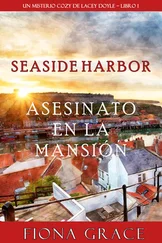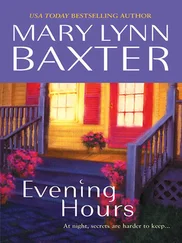I suppose, I said, if you know.
Trish told me what the police had told her, that she died of malnourishment, that she had starved. Trish said this matter-of-factly, without any weakness in her voice. Oh, I said. Trish said, Did you know she was having difficulties? No, I said, I didn’t. But that was not the truth.
On my father’s first day in Berlin — which was my second day — we hung around near our hotel. Miriam had lived in a cheap little apartment in a Turkish neighborhood, overrun, nowadays, by non-Turks. We stayed in a different part of town, which was thoroughly gentrified and full of boutique clothes and coffee shops. We got a feel for our surroundings. My father was jetlagged, so he took an hour-long nap. I sent the marketing director at the aerospace firm an e-mail saying a family member had died and I would be out of contact for a day or two — I was not to begin work until the beginning of the next week anyway. I sent a few more e-mails to other people saying I’d be out of touch, but I gave no explanation. I set up an auto-reply on my e-mail. My father and I walked around and looked at stores, we even went to see a part of the Berlin Wall. It was cold, and my father was freezing. I let him wear my coat and we bought him a funny, colorful, striped winter hat and some big black ski gloves. Trish met us for a late lunch. I asked her not to say anything to my father about identifying the body — and I asked her to trust that I knew what was best for him. I assumed this would be their only meeting. I had no idea how important Trish would become to my father during the trip. They made a deep and instantaneous connection. She told him he was good to come all this way. He confessed his dream to have a family that belonged somewhere. That dream was ruined now, he said. I could see what my father was doing. I should have never let Trish meet him. My father became a little bit emotional, and Trish put her hand on his arm, and he put his other hand on her hand. I said, Dad, you’re exhausted.
On the second day, my father and I decided to go to Miriam’s apartment — we would meet the landlady to see about her things, and it was agreed that Trish would come along. I woke around ten. Though I didn’t know it, my father had been up since six, and he had walked to a department store in Alexanderplatz and got himself a proper winter coat. I woke, showered, came downstairs, and had my breakfast at a nice café right next door to our hotel. It was an ice-cold, sunny morning. I was just about to get up and go check on him when he arrived, at the window, looking like a man lost in the Arctic. Because we suspected we’d be leaving in a day or two, my father laughed about how much he had spent on something he would never ever wear again. I should have bought it in a bigger size, he said, so you could take it back to London. I said, You can’t wear a coat like that in London.
An hour after that, having met up with Trish, we walked over the threshold of Miriam’s apartment, one by one, gravely, with our hats in our hands, into the cramped, cluttered, and distressing space where she died. My father was the first to go in, then me, then Trish, then the landlady. The landlady, who was from Denmark, stood just inside the door, observing us. The walls were faintly yellow. The windows were cloudy. They were so cloudy that they were just overbright images of glare. There were two rooms connected through an open archway, a small kitchen, and a bathroom. The main room contained a dining table, a couch, and a couple of pieces of furniture. The bathroom was cluttered and neglected. It had been examined by the health authorities. My father stopped and stood still. He crossed his arms. Trish came and stood beside him. I kept going, toward the archway to the second room, which contained books and boxes and clutter. There was a space where, obviously, a small bed had been. There was also a large wardrobe full of clothes. The whole apartment, weirdly, smelled of rust. And also quite sour. The heat was on, and the place was warm. I said, There’s a lot of stuff here. My father was sitting at the kitchen table. He didn’t look up. I guess he didn’t care about the stuff, or what we were going to do with the things she left behind, and I felt a little embarrassment for having spoken the first sentence in Miriam’s apartment, a sentence that nobody cared about. The landlady moved from the doorway, and, perhaps because she felt the need to do something useful, turned the taps on, as though she was checking them. I felt like sitting, too, but I didn’t want to sit at the table, because my father seemed to command all the grief in that part of the room, and I didn’t dare sit on the couch, because I did not know where she had died, and, just in case she had not died in bed, I did not want to sit where she had died. After a few minutes of complete silence, my father looked up at the landlady — having arisen out of the depths of the memory of his life, and his memories of Miriam as a girl, out of his wishes that she were not dead, and out of the commonplace shame of not knowing her well enough as an adult — and said, Who found her?
The landlady said, I did, and some repairmen, we found her in the bed.
How long had she been dead? he asked.
Not long, she said.
My father leaned back and looked at the table. I sat down on the couch. It was an old green couch that was very soft, and if it had been a little less dusty and if it had smelled a little cleaner, it would have been a fine piece of furniture. It could easily be fine again, with a little attention. In fact, a lot of her stuff seemed quite nice. It took a couple of visits to realize just how nice and how valuable some of the furniture might be, but even then, on that first visit, I was struck by the fact that although the apartment was cramped and cluttered and dusty and foul-smelling, Miriam had, at one time, taken care to live among objects that were worth something. Perhaps the apartment became, in the end — I remind myself that speculation doesn’t help, but I can never stop myself — a forgery, perhaps she gradually awoke, or even suddenly awoke, to the realization that happiness was permanently out of reach, that her suffering — or whatever constituted her suffering — was permanently coiled around the roots of her determination to reject suffering.
After my marriage ended, I moved out of the flat in Fulham Broadway. I didn’t want to live in a nice flat. I didn’t want to have nice things. My wife bought me out. She made me an insulting offer, or at least an offer that suitably reflected just how hateful we had become to each other, and I accepted, because she threatened me with a legal battle if I didn’t. I found a room in a house in Peckham Rye. The house had mildewed walls, single-glazed windows that went cloudy with condensation on cold days, rickety furniture, and a bathroom that turned to ice in winter because it had no radiator. It was just the kind of house I wanted to live in. It seemed that I had been steadily moving upward since I arrived in London, surrounding myself with ever-increasing comfort, convenience, and abundance, and when the marriage ended and I had an opportunity to observe how far up I’d come — how inflated my expectations of luxury had become, how hedonistic my perspective — I threw myself off that great height. It was actually Nunhead, not Peckham Rye, but nobody knows where Nunhead is. I had a housemate, an arts student who was always sick, and he had nothing to his name but his clothes, a TV, and a nice camera, with which he took pictures of himself, what he called studies of his illness. He showed me his photographs. He had protruding ribs. He had bony hips. And he had a large and slightly blue penis. I had to live in our kitchen, because he had turned the couch in our living room into his own personal deathbed. He was twenty-four or twenty-five. Our kitchen was nothing but a freezing and breezy little hallway with a door to some steps that led to a stinking narrow alleyway full of cats and garbage, and it never saw sunlight in winter. Meanwhile, in the living room, tissues piled up on the floor as he — I am unable to remember his name — voyaged through the depths of television. Often he lay beneath his duvet, in which he entombed himself, and, when he decided to change the channel, which was very rare, a hand with a remote control would emerge, extend, strike, and disappear. I remember long runs I used to take when I lived there. My runs began at five in the morning. I came home late in the evenings and set my clothes out in the order I would put them on. Each night I set out my running shorts and shirt and windbreaker and socks and shoes and a little winter cap that, when I ran the next morning, invariably I pulled off after one minute, no matter how cold it was. I set them on a rickety wooden chair beside my bed. My alarm went off and I sat up. I always, at this moment, felt sick and unutterably tired, but I told myself, Run, get up and run. I was seeing somebody at the time — an old friend of my ex-wife’s — and if she came over to sleep, which was rare, because she hated the place, she would groan when my alarm rang and cover her head in pillows while I tried to dress in the darkness. I was drinking. I wasn’t sleeping. It seemed to me that I was all alone, that nobody could live like I was living. I derived great energy from that, and I presume that’s how I was capable of waking myself up to run. I got dressed, brushed my teeth, stretched for five minutes, and left the house. I ran the same route every morning, to Battersea Park and back. While I ran, I could think of how alone I had made myself. I felt wondrously distant from people, even though I was living in one of the world’s great cities. I ran very fast, the fastest pace I could maintain. There were days I got home and threw up. Then I showered, dressed, typically had a bowl of cereal, and left for work.
Читать дальше











